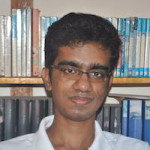An Advertisement For Independence

By Uditha Devapriya –January 31, 2017
Recently I was asked to suggest a good tagline for Independence Day. The selling point was the main theme engendered by February 4, freedom. Such taglines, however, are notoriously difficult to come up with, so after days of thinking and scribbling, I was given an idea to pursue: instead of freedom, we’d opt for a different theme. That theme would be the perennial problem we encounter every February: the fact that we take our own Independence Day (and what it stands for) for granted. Put simply, our collective indifference. Needless to say, I loved it.
In the United States of America, schoolchildren are taught about Constitutional Law and the Founding Fathers through illustrated and easy to read guides. There are simplified versions of the Declaration of Freedom, annotated for the common reader, which are never out of print. Classrooms are littered (for the lack of a better term) with posters designed by students centring on what they think about Independence. Broadway directors turn the lives of the Founding Fathers into veritable musicals and Hollywood, time and time again, feature them as heroes. The last time I checked, Abraham Lincoln had become a vampire hunter.
What does independence mean for us, given that a few days from today we’ll be celebrating 69 years of it? Is it freedom or nidahasa, or is it what it literally means, svadinathvaya? If the latter is true, we have no reason for pride. We are not completely independent in the sense that we are part of this accursed reality (which we must acknowledge) called globalisation, but despite that a country can still claim self-sufficiency by realising its potential and making its leaders work for its people. In other words, independence is not just about nationalism and rhetoric, it’s also about working for the broader citizenry, eschewing ethnicity and faith. Unfortunately, we have not even achieved that.
Politically we have allowed our rulers to tinker with the democratic process. If 1956 signified a congruence of liberalism and ethno-nationalism (a paradox, certainly), it didn’t continue because of the structural flaws of a system that, to this day, entrenches the power of the privileged. Economically we have progressed from having Singapore use us as a model to having Singapore as a model. Culturally we are yet to claim an identity of our own, in part because our nationalists are tragically a hybridised lot, disdainful of Westernisation in public and enamoured of it in private.
All of this naturally begs the question: what SHOULD svadinathvaya entail? Do we take it literally and repudiate globalisation, or do we enjoy the latter while hypocritically celebrating self-sufficiency? The West, with the recent intrusion of rightwing political parties, is seeing a return to mercantilism and the form of capitalism that subsisted during the Industrial Revolution (indefensibly and manifestly privileging the pursuit of money over everything else). Does this mean that the East should follow suit?
The answer, I feel, will not be found by resorting to politics. It will be found by resorting to literature. I am thinking here of Rabindranath Tagore’s Ghare Baire (“The Home and the World”), which explores the rift between cosmetic nationalism and sobriety. The former, personified by Sandip (the nationalist), results in the destruction, while the latter, personified by Nikhil (the rationalist), results in progress. If we obtain an analogy here, we can surmise that the history of this country, after independence that is, has more or less been driven by the rift between the Sandips and the Nikhils in our Parliament and government.
To be sure, a country’s destiny can’t be reducible to what goes on in those two institutions, but given the structure of privilege we’ve let our representatives wallow in, there’s no point in claiming that power exists in the periphery. We can’t have the cake and eat it too, after all. If we elect idiots, we shall be ruled by idiots. That’s democracy for you today.
To this end, it’s pertinent to remember that a great many people of this country believe that independence was given to, and not won by, us. A rather crass generalisation to make, particularly since it trivialises those who actually fought for our freedom, but spot on if we relate it to the moment of independence, i.e. February 4, 1948. It doesn’t take one much time, after all, to read the likes of Kumari Jayawardena and conclude (rather depressingly) that most of those touted as heroes today were less concerned about achieving complete independence than about ensuring that the White Man handed over his mantle to the pukka sahib.
There’s no point dwelling on the past if we don’t anchor it for the future, no less a person than Martin Wickramasinghe informed us. But there’s no point thinking of the future without thinking of the past, a point that Wickramasinghe emphasised as well. If we decry English as a privileged tongue while secretly indulging in that same privilege, if we teach OTHER children to cherish the game pasale while ensuring by hook or crook that OUR children are admitted to elite institutions, where’s the freedom we should be embracing? Where’s the past we should be celebrating and the future we should be bracing ourselves for?
Forget that. Take another issue. How many of us are bothered to think about our history? How many of us are rooted enough to appreciate our methods of irrigation and our ancient civilisation without either degrading them as inferior or ballooning them as the greatest in the world? The former sentiment is echoed by the cosmopolitan, the latter by the cosmetic nationalist. If we are to claim independence, neither individual will do. And yet, we can concede that both of them have called the shots here, often clinching power and more often than not retaining power.
